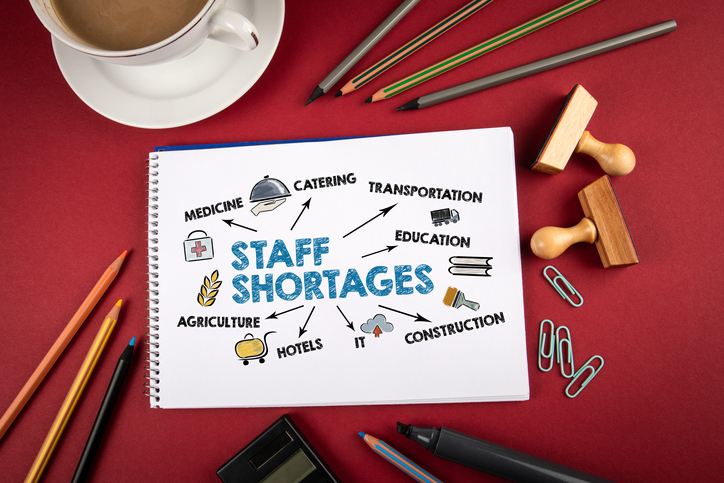The labor market for hospitality is what it is right now. As travel recovers, it may stay at its current low levels, or it may swing back so that hotels are flush with possible new hires. We can’t relay on the latter, though, which means a top goal should be reducing your employee churn rate and developing a culture that retains good hires so that you are protected as much as possible from the current labor shortage.
Compounding the problems at the frontline is what has been called ‘The Great Resignation’ where, across all sectors and not just hospitality, the pandemic has given pause for many at the managerial level. Knowledge workers have reflected on their work-life balances and are quitting in droves to seek out better opportunities – ones that are better suited to their personalities and with the potential for more upward mobility.
A third factor in all this is the ownership-driven push for a better bottom line by maintaining a lean team going forward. Technology and automation have been a saving grace in this aspect by allowing teams to stay lean and still increase productivity, but the problem is that these skeleton crews going forward now have far fewer spokes on the wheel with a single resignation potentially leaving the whole organization stymied to adequately pivot.
The somewhat-kneejerk solution for achieving better talent retention at both the shiftwork and salaried levels is to pay better wages, but it isn’t that simple. Raising wages across the board to what some armchair economists calculate as ‘livable’ in sharply inflationary times often gets reduced to a ‘feed the beast’ situation employers are compelled to consistently spend more on human capital lest people revert to leaving once again. While monetary incentives are indeed a factor in talent retention, without structural changes to the organization they won’t work long-term.
Instead, the push must be for more team recognition and sense of belonging within an organization. People want to know that their work has meaning and has value towards a greater good.
With COVID-19 obliging hotels to ramp up their health safety procedures for employees (and not just guests), so too must we heighten our teams’ psychological safety. Many cultures rightfully strive to treat their employees like family but what does this mean exactly?
Here are some considerations to improve the psychological wellbeing of your teams so that they stay engaged with their work:
- Top-down and bottom-up communication whereby anyone should feel enabled to bring their ideas forward (in a coherent manner) then get constructive feedback on why or why not they may work
- More lateral communications where outsider ideas are embraced from disparate departments and ‘stay in your lane’ comments are vehemently chastised because of their ability to limit the development of creative (and cost-effective) solutions
- Technology integrations to expedite basic or repetitive communications so that team members aren’t bogged down by interruptive and boring tasks, and can instead focus on the more complex, challenging, visionary and ultimately rewarding projects, or have more time to focus on directly liaising with guests (which is the underlying reason why many have chosen hospitality over other more lucrative industries)
- Just as you wouldn’t banish one of your kids for not cleaning the kitchen properly after a big meal, so too must you provide safety from failure where we accept that we’re all human and mistakes will be made, and that team members shouldn’t necessary fear bringing forward minor errors because they are part of the bigger process of trusting, individual empowerment
- Employee appreciation is an obvious one and can take the form of paid lunches, monthly rewards, enabling remote work setups for those with infants or something as simple as an earnest ‘Great Job’ spoken after genuine hard work is performed
- Succession planning and mentorship are essentially two other forms of recognition in that you are demonstrating that you value a team member enough to earmark them for greater responsibility and a promotion down the road
There’s obviously a lot more you can do, and indeed a quick search on Amazon will reveal dozens of organizational behavior books you can read to get some deeper insights. We kept it short because less truly is more. You need only implement a few of these ideas to obtain real results; but by that we mean actually implement and not just put inscribe some new policy that no one acts upon.
The end result that we can attest to is that people at all levels of employment seek out great companies. We’ve seen this with great hotel organizations and for companies completely unrelated to hospitality. When you value and recognize your teams, people will come to you, regardless of the macroeconomic pressures, which will in turn relieve human resources and give you much more bandwidth to confidently grow your company knowing that you have a strong team behind your every move.
